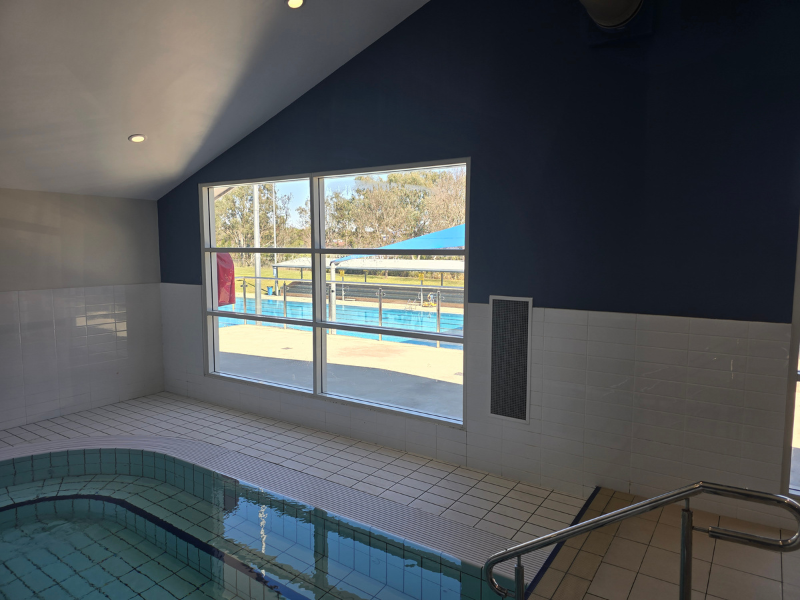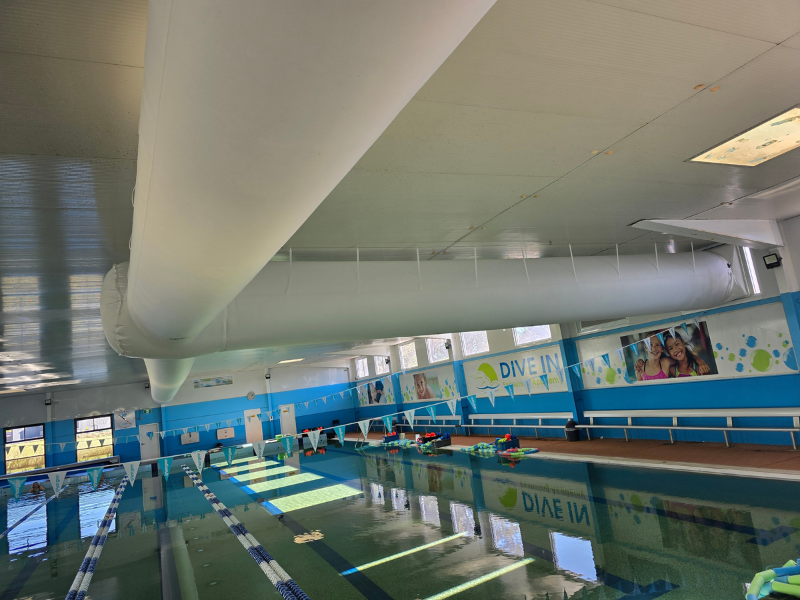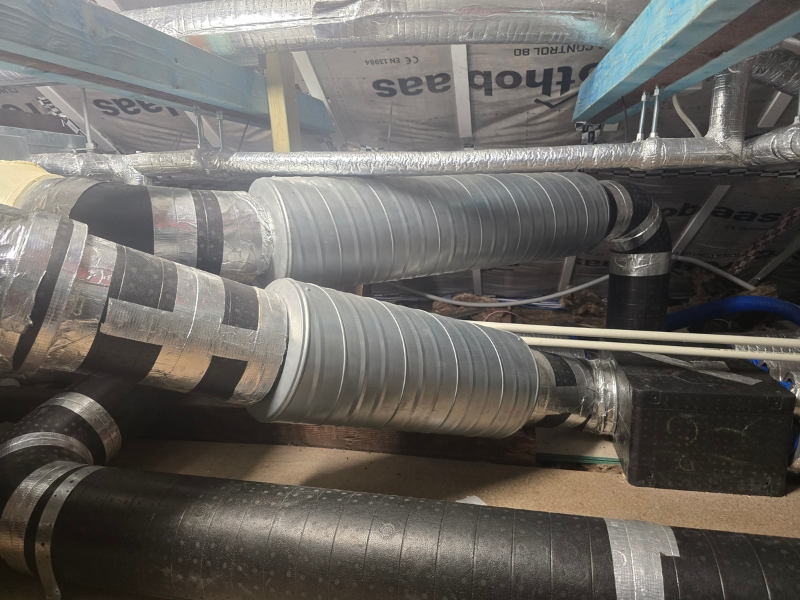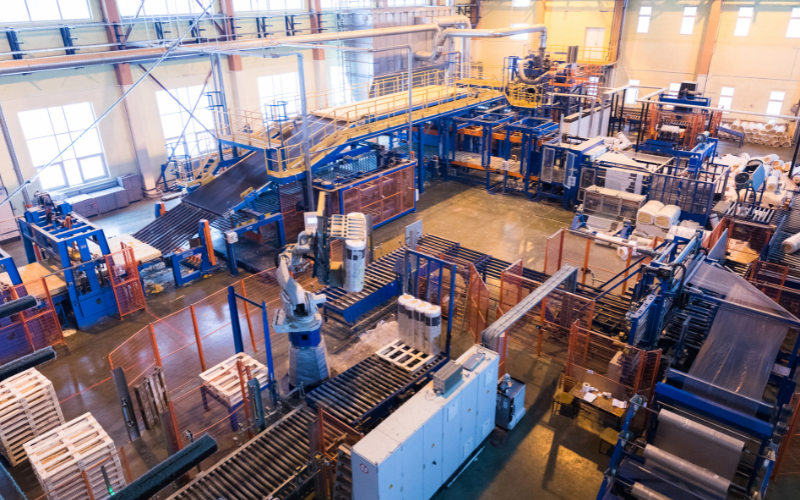In the picturesque town of Robertson, NSW, Zenith Ventilation was engaged to install a dehumidification system in a newly built residential home featuring an indoor pool. While the property was modern and beautifully finished, it presented one key challenge—there had been no allowance for concealed ductwork or mechanical ventilation in the original design.
With moisture control being critical in any indoor pool setting, the homeowners needed a reliable solution that could manage humidity, prevent condensation, and protect the building’s integrity. Working alongside the system supplier, Zenith Ventilation was tasked with carrying out a clean, precise installation that would deliver outstanding performance within the constraints of the existing structure.
A Space Without Provision for Ductwork
Because the home had not been designed with integrated ventilation in mind, traditional concealed ductwork wasn’t an option. Ceiling voids were unavailable, and there was no space to run ducts through internal walls. However, the need to introduce warm, dry air and remove humid air from the pool room was non-negotiable. Left unmanaged, excess moisture would soon lead to issues such as fogged glass, mould, and long-term damage to internal finishes.
Installing the Dantherm DanX2HP System
Zenith Ventilation was appointed to install a Dantherm DanX2HP Indoor Pool Climate Control System—a highly efficient unit well suited to indoor aquatic environments. Designed to regulate both humidity and temperature, the DanX2HP combines a double crossflow heat exchanger with an integrated heat pump.
The system delivers heat recovery of over 100%, with the heat pump further improving its dehumidification performance. Outdoor air intake is kept to a minimum, just enough to maintain air quality, making the system energy-efficient and cost-effective for the homeowner.
Overcoming Limitations with Smart Installation
With limited space to work with, Zenith Ventilation installed exposed steel ductwork mounted directly to the ceiling. This practical choice turned out to be an aesthetic win as well—delivering a modern, industrial look that blended seamlessly with the home’s architectural style.
Eyeball-style vents were positioned along the ductwork, allowing targeted airflow to be directed specifically toward the windows and glazed doors. This helped control condensation exactly where it was most likely to occur—maintaining clear views and reducing the risk of moisture-related damage.
Every aspect of the installation required careful planning, from the alignment of duct sections to the placement of vents and the securing of support brackets, all while respecting the design of the finished space.
High Performance in a Demanding Environment
Once installed, the system performed as expected. The air in the pool room became noticeably more stable and pleasant, with consistent temperature and humidity levels. Fogged windows were no longer an issue, and the risk of corrosion and dampness affecting the property was significantly reduced.
This type of outcome is especially important in residential environments where building materials, paint finishes, and furnishings are not always rated for high moisture conditions. A professionally installed dehumidification system ensures these elements remain protected and the indoor space remains inviting for daily use.
A Showcase of Adaptability
This Robertson installation is a great example of how Zenith Ventilation delivers quality results—even in less-than-ideal conditions. While concealed ventilation systems are often preferred for new builds, they aren’t always feasible. This project demonstrates that a high-standard mechanical ventilation solution is still entirely achievable with the right planning and execution.
Zenith’s team worked with precision, collaborating closely with suppliers and other trades to ensure the system was not only functional but also respectful of the architectural intent of the space. The result was a discreet but effective installation that preserved the overall aesthetic while delivering excellent air quality and climate control.
Trust Zenith for Specialist Installations
Zenith Ventilation specialises in the installation of complex air handling systems across residential, commercial, and industrial projects. Whether it’s a challenging retrofit like this Robertson property or a large-scale new build, their experienced installers are trusted by system designers, HVAC consultants, and builders to get the job done right.
If you’re planning a build or renovation that involves humidity control, especially in pool environments, don’t wait until condensation becomes a problem. Speak with the Zenith team about installation solutions that suit your space—no matter how complicated.













